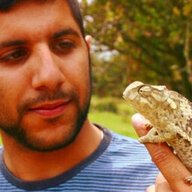Digital and Coding: Alumni Profiles
Jared Wilson-Aggarwal

Jared Wilson-Aggarwal graduated from BSc Zoology at the University of Exeter’s Penryn Campus in 2012. While he has never formally been taught coding, his background in research and data analysis has allowed him to build a basic understanding of computer science. In his current role as a research fellow at the University of Leeds, Jared has been able to self-teach and improve his coding skills and etiquette. This has allowed him to work more effectively with his computer science colleagues and produce research with impact.
Can you tell me about your current job and what it involves?
I’m a research fellow at the University of Leeds, investigating the spatial movements and social interactions of healthcare workers in the hospital environment and the risk of contracting COVID-19.
Does it involve much coding?
Yes and no. Most research jobs that involve data analysis require experience using R or python, and my weapon of choice is R. These platforms demand a basic understanding of computer science to effectively manage, process and analyse data. While I sometimes write my own functions, I mostly use packages written by others. Coding is increasingly becoming a necessary skill for researchers, especially with the rise of big data analytics, but you can definitely get by easy enough with just the basics.
What challenges arise when working with people trained differently to you?
My job involves working with geographers at the University of Leeds and clinicians and computer scientists in the NHS. It's been particularly eye opening working with people from a computer science background, and I’ve definitely felt ‘out of my depth’ in terms of coding knowledge. My first challenge was deciphering the various acronyms they use, and now the challenge is to learn better coding etiquette and data flows, which is extremely important when working with sensitive health data.
Conversely, how do your skills and those of your colleagues complement one another?
Working in partnership with computer scientists and clinicians at the NHS is improving the impact of our research. For example, our scientific questions, data requirements and analytical frameworks are inspiring data managers to operationalise routinely collected data in novel ways. We also get feedback from clinicians who can help to tailor the presentation of results to better support frontline healthcare workers.
What roles did you hold before this current job and what were some of the most transferable skills that helped you get where you are now?
After graduating from a zoology degree I landed myself a research assistant position studying aspects of sensory ecology and camouflage. I then completed a PhD investigating the spatial and social ecology of free-ranging domestic dogs in rural Africa, with the aim of informing the management of dog-mediated diseases. I think the transferable skills that have been key to my career include project management and the ability to adapt (whether it be for fieldwork or analyses), critical thinking to systematically tackle research questions, and communication skills to quickly disseminate complex concepts to non-specialists.
What advice would you give to someone wanting to get into your line of work?
My advice to someone pursuing a career in research is to:
- Seek out opportunities, don’t wait for them to come to you.
- Don’t disqualify yourself, always apply for positions you’re interested in even if you don’t think you fit the bill.
- Build a network and utilise your contacts, this can open doors and create new opportunities.
- Keep an open mind; my career has bounced between disciplines and my interests have changed substantially, even now my career path is edging in a direction I didn’t foresee.
